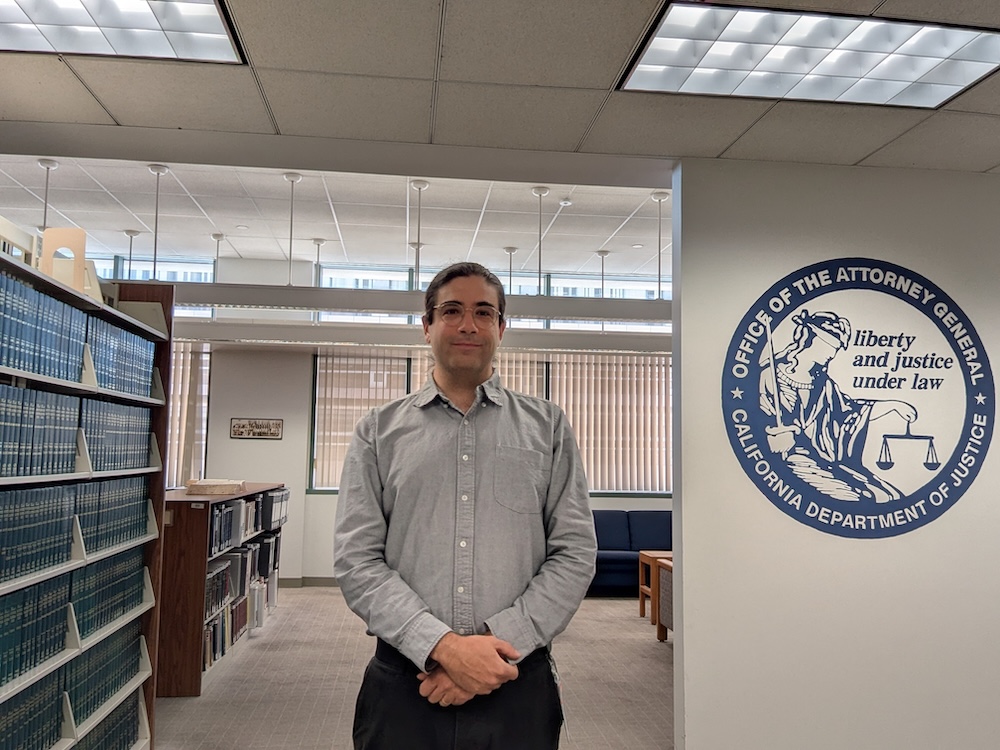
David Randall ’26 is already making an impact on the future of environmental protections in California through his summer position as a law clerk with the California Department of Justice’s Environmental Justice and Protection Section. His job has given him exposure to areas of the law that will help him litigate against corporate defendants – some of the biggest lawbreakers in his field – while helping shape the future of environmental regulations.
- How did you land your summer job?
I know I want to work in clean air, clean energy, or climate, so I applied to every government and non-profit position where I could learn about those areas of the law. The California Department of Justice’s Environmental Justice and Protection Section (EJPS) was the first to make me an offer, and I am delighted to be working with them.
- What was/is the most interesting part of your job?
The Trump administration has been pursuing a broadly anti-regulatory, and specifically anti-environmental, agenda. California is a leader on climate and environmental issues, and the state has been putting its expertise to use by challenging several of the president’s related executive orders. EJPS is composed of dedicated experts, and it has been exciting to join them in the fight for the health and welfare of Californians and their environment. It is, perhaps unfortunately, a very interesting time to be working in environmental law.
- What has been your most challenging assignment thus far?
Defendants in environmental enforcement actions are typically corporations, and I have not had much exposure to things like agency law, corporate parent/subsidiary relationships, or corporate rights. Therefore, my most challenging assignments involve defendants who, in addition to violating multiple complex environmental statutes, attempt to avoid liability by, say, hiding behind the corporate veil or invoking corporate speech protections. I hope to learn more about these kinds of defenses in Business Associations next semester.
- What new legal skill have you acquired during your summer job?
This week I drafted my first comment letter. The comment process is one of the ways that communities and their advocates can get involved in regulatory rulemaking. Whereas litigation often feels reactive and backward looking, rulemaking has the potential to be forward looking. It has been nice to spend some time thinking about how things should be, instead of how they should have been.
- What bit of legal knowledge have you been able to display?
Last semester I had an internship with the federal Department of Justice’s Environmental Enforcement Section, which allowed me to familiarize myself with several federal environmental statutes including the Clean Air and Clean Water Acts; the National Environmental Policy Act; the Resource Conservation and Recovery Act; and the Comprehensive Environmental Response, Compensation, and Liability Act. In the few weeks I have been at EJPS, I have already been given assignments relating to each of these statutes, and my prior experience has been invaluable.
- How has Loyola helped you map your career path?
My career path has taken shape thanks to invaluable support from my mentors. I am especially grateful to professors Katherine Trisolini and Nadine Tan, who were generous with their time and advice while I was looking for summer employment. I am also thankful for the funding provided by the Public Interest Law Foundation and the Summer Public Interest Employment Program.